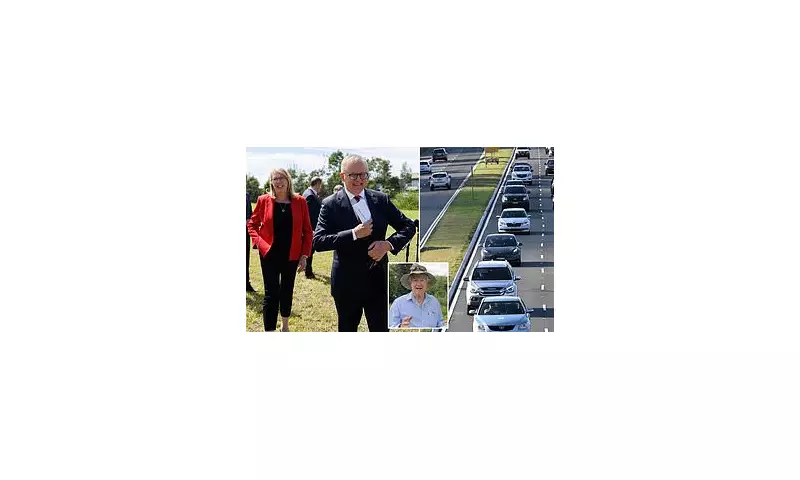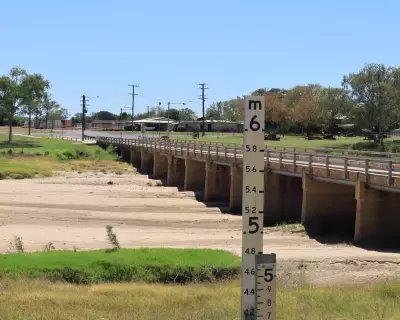
Farmers Outraged by Proposed Speed Limit Reductions
Australian agricultural workers have fiercely criticised a government plan to dramatically reduce speed limits on rural roads, branding the proposal as "extraordinary nonsense" that fails to address the real causes of road accidents. The controversial scheme would see default speed limits outside built-up areas slashed from the current 100km/h to as low as 70km/h in some instances.
Agricultural Community Voices Strong Opposition
Sydney radio presenter Ben Fordham revealed that the proposal "was not going down well" with farming communities, who argue that reduced speed limits would merely function as a "band-aid fix" while significantly delaying the transportation of essential food supplies and other goods. The backlash emerged following confirmation that the Federal Department of Infrastructure is consulting on options to cut default speed limits on rural routes as part of efforts to reduce Australia's rural road toll.
NSW Farmers Association president Xavier Martin expressed the industry's frustration with repeated speed crackdowns, stating: "What we run on across the nation is commonsense in producing food and fodder. We've got to get about our business so this proposal to drop the speed limit to a blanket 80 kilometres an hour is just a strawman solution for road safety."
Calls for Proper Infrastructure Investment
Mr Martin emphasised that substantial investment in road and bridge maintenance represents the genuine solution needed after several years of challenging weather conditions. "What we really need is serious investment - after these four or five wet years - in our roads and bridges... they're all wrecked," he told Fordham during the radio interview.
The farmers' leader also suggested the government might have additional motivations beyond road safety, noting: "They also mention this concept around reducing greenhouse gas emissions and prioritising climate goals, well hello, we have to produce food and fibre out here. Unless everyone stops wearing clothes, stops eating and hides in the back of the cave, we actually do need to go about our business."
Martin didn't mince words when assessing the government's productivity efforts, remarking: "Albanese actually held a productivity study up immediately after the election, apart from spelling productivity, I'm not sure anything productive has come out of it."
Detailed Proposal and Wider Criticism
The infrastructure review, initiated under Albanese government Infrastructure Minister Catherine King, outlines three potential options for sealed roads: reducing default open-road speed limits to 90km/h, 80km/h or 70 km/h. For unsealed surfaces, the consultation proposes two alternatives: 80km/h or 70km/h.
The proposed changes could significantly impact multiple groups including truck drivers, farmers, tradespeople and holiday travellers if adopted nationwide. According to a Department of Infrastructure impact analysis, the review aims to identify methods to decrease fatalities and serious injuries on Australia's rural roads while meeting national trauma-reduction targets.
Melbourne motoring enthusiast Stephano Calabro joined the chorus of disapproval, describing the proposal as a "disgrace to the community in the countryside." He argued: "The reason being farmers need to drive, and you know, most farmers and most country people are very, very good at driving out there. Seventy, eighty, ninety [from] 100, I reckon that's not gonna work, the reason being is because irresponsible drivers will still be irresponsible drivers."
Calabro emphasised that accidents would occur regardless of speed restrictions and expressed concern about dramatically increased travel times, stating: "It's gonna take us 10 years more just to get to a farm property, so, in my thoughts it will not change anything. The government... you guys are not using your brains."
Government Justification and Political Backlash
The government's proposal paper defends the planned reductions by noting that reducing road casualties represents a "priority for all governments." The document states: "In 2024, 1294 people were killed on our roads, with more than 30,000 people seriously injured as a result of road crashes. Speed is a major factor in serious and fatal traffic crashes."
The paper further explains: "Some roads outside of built-up areas, especially in regional and remote areas, may not be safe to travel on at 100km/h. Many of Australia's regional and remote roads are not sealed, and may be dirt or gravel tracks. Other roads may have sealed surfaces, but may be in poor condition, or lacking the road features that would enable safe travel at high speeds."
Nationals Leader David Littleproud MP condemned the approach as "lazy government" and criticised what he called a "disingenuous approach to road safety reform." He insisted that authorities should concentrate on repairing deteriorating road networks rather than simply reducing speed limits. "Poor road conditions remain one of the most prominent issues that locals are facing, with plenty of roads in desperate need of repair," Mr Littleproud asserted.
The consultation process continues amid growing opposition from rural communities who argue that proper infrastructure investment, rather than speed reduction, represents the only genuine solution to improving road safety in regional Australia.





